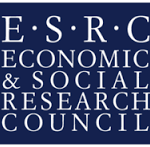sociology of people’s names
I am interested in naming practices in terms of identities, bodies, equality and social justice, and also family surname choices in the context of greater diversity and flexibility in contemporary gender identities and family relationships. My current projects examine the pronunciation of names in higher education in the context of culturally diverse student identities and names and naming in families formed through adoption. I have talked about names on The One Show, Woman’s Hour and Thinking Allowed. I founded and am Director of the People’s Names Research Network, an international group of academics and others interested in the study of people’s names. My expertise in this newly emerging area of sociology has also been recognised by being shortlisted for the 2017 SAGE Prize for Innovation and Excellence.
“Names are so much more than mere nouns. They are adjectives or describing words, informing us about people’s social and cultural identities”.
sociology of gender
I am an expert in the sociology of gender – identities, relationships and (in)equalities, and feminism. My book Women in Contemporary Britain emphasises the continuing significance of gender as a social division, albeit one shaped also by class, ethnicity, sexuality and age. With Imelda Whelehan, I have written a critical evaluation of Key Concepts in Gender Studies (including a 2nd edition, published in 2017, and translations in Japanese and Vietnamese).
“Gender awareness travels across our lives and gender studies gives us a conceptual structure to navigate with”.
Within the sociology of gender, I have drawn attention to the ways in which age acts to fragment women’s experiences, particularly through cohort processes. This argument is presented in various publications, but particularly in my 1998 book, Women of Their Time. More recently, I have led on sociological thinking about gender and names.
sociology of age: cohorts, generations and the life course
A key area of my research expertise is the sociology of age – cohorts and generations (like the Baby Boomers and the Millennials), and the life course and its stages, especially childhood. My book Age and Generation in Modern Britain examined the range of ways age influences identities and places individuals in positions of structural (dis)advantage. My contribution to this field can also be found in other publications, where I have made interpretations of theoretical works (specifically that of Karl Mannheim) as well as applying such theory to the interpretation of empirical data.
“Alongside social class, gender and ethnicity, societies are also stratified by time: people belong to different ‘generations’ or cohorts”.
My interest in the sociology of age is also apparent through my research on historical constructions of childhood, particularly in relation to health and sex education, and through a study of children’s consumption of clothing and fashion.
“Children carry a burden of responsibility for the future, at both an individual level and a societal level – but girl children especially so.”
funded research
In 2021, I was awarded a British Academy Small Research Grant, for a study on the pronunciation of students’ names in higher education.
In 2021, I was awarded a major research project grant from The Leverhulme Trust for a study of experiences and impacts of names and naming in families formed through adoption.

I have had funding (with C. Pole and T. Edwards) from the Economic and Social Research Council/Arts and Humanities Research Board for a study entitled ‘New Consumers? Children, Fashion and Consumption’.
I have also had a research expenses grant from The Wellcome Trust’s Unit for the History of Medicine for a study entitled ‘Sex in School Health Education, 1908-1981’.

 Other funded research projects I have worked on include a study of women in families of three generations, an evaluation of a careers initiative aimed at schoolgirls, an evaluation of a hospital discharge scheme for elderly patients, and a literature review of young people’s labour market experiences.
Other funded research projects I have worked on include a study of women in families of three generations, an evaluation of a careers initiative aimed at schoolgirls, an evaluation of a hospital discharge scheme for elderly patients, and a literature review of young people’s labour market experiences.